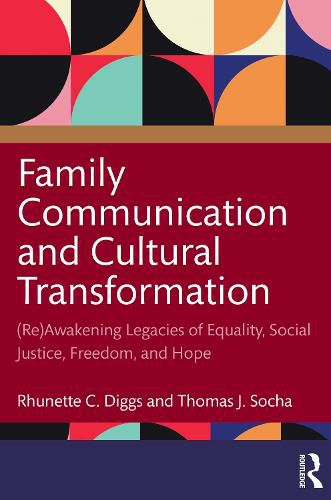Readings Newsletter
Become a Readings Member to make your shopping experience even easier.
Sign in or sign up for free!
You’re not far away from qualifying for FREE standard shipping within Australia
You’ve qualified for FREE standard shipping within Australia
The cart is loading…






Building on their past work in race and family communication, Rhunette C. Diggs and Thomas J. Socha gather in this volume contemporary theory and research concerning ways that families use communication to transform inherited cultural legacies for the better (Communication 3.0).
The book expands the field of communication’s understanding of the impact of family communication on the management of diverse and clashing cultural relationships, identities, meanings, and communication practices across the lifespan. It spotlights the economically disenfranchised alongside the economically secure, the systematically oppressed next to beneficiaries of Whiteness, and those actually or metaphorically killed and or threatened by violence and hateful systems outside of home. Together, the contributions address omissions of diverse family contexts in family communication research and reconsider qualitative and quantitative approaches that bring respect and equality to the participant-researcher relationship.
This book is suitable as a supplementary text for courses in family communication, family studies, race and ethnicity in communication, and intergroup communication.
$9.00 standard shipping within Australia
FREE standard shipping within Australia for orders over $100.00
Express & International shipping calculated at checkout
Building on their past work in race and family communication, Rhunette C. Diggs and Thomas J. Socha gather in this volume contemporary theory and research concerning ways that families use communication to transform inherited cultural legacies for the better (Communication 3.0).
The book expands the field of communication’s understanding of the impact of family communication on the management of diverse and clashing cultural relationships, identities, meanings, and communication practices across the lifespan. It spotlights the economically disenfranchised alongside the economically secure, the systematically oppressed next to beneficiaries of Whiteness, and those actually or metaphorically killed and or threatened by violence and hateful systems outside of home. Together, the contributions address omissions of diverse family contexts in family communication research and reconsider qualitative and quantitative approaches that bring respect and equality to the participant-researcher relationship.
This book is suitable as a supplementary text for courses in family communication, family studies, race and ethnicity in communication, and intergroup communication.